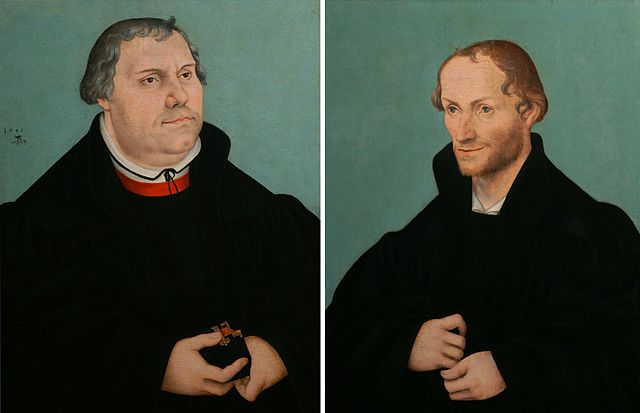
All passages are from RSV.
* * * * *
First, Cardinal Newman’s words:
The Gospel is said to be “the power of God unto salvation;” Christ, “unto the called, both Jews and Greeks,” is “the power of God and wisdom of God.” And so as regards the Apostles and Christians generally. Thus we read of St. Paul’s ministerial power as a similar inward gift;—”whereof,” he says, that is, of the Gospel, “I was made a minister, by the gift of the grace of God, which was given to me by the inward working of His power.” Again, he speaks of his “striving according to His working, which worketh in me mightily.” [1 Cor. i. 18-24. Eph. iii. 7. Col. i. 29.] Again: “Most gladly therefore will I rather glory in my infirmities, that the power of Christ may rest upon me.” Now this expression, “rest upon me,” is in the original “rest upon me as in a tabernacle;” and is used elsewhere. For instance, in an earlier part of this same Epistle, the word “tabernacle” has been used for the mortal body. What, then, St. Paul rejoices in, is that the power of Christ is upon his tabernacle or body; and the weight of this privilege is intimated by the adoption of the word in the Apocalypse, to describe the characteristic of future glory, “He that sitteth on the throne shall tabernacle over them.” [2 Cor. xii. 9. Rev. vii. 15; xxi. 3.]
To the same purport are the following passages: “I can do all things through Christ which strengtheneth me,” that is, more literally, “I am every way strong in the power-imparting Christ,” or “in Christ who worketh power in me.” And it is observable, that this power is said to be the same as wrought the Resurrection, or what is elsewhere called glory; St. Paul, as I have said, prays for the Ephesians, that “the eyes of their understanding may be enlightened, that they may know what is the hope of His calling, and what the riches of the glory of His inheritance in the saints, and what is the exceeding greatness of His power to us-ward who believe, according to the inward working of the might of His strength, which Hewrought in Christ when He raised Him from the dead.” He returns thanks and praises “unto Him that is able to do exceeding abundantly above all that we ask or think, according to the power that worketh in us.” He desires for himself that he “may know Him, and the power of His resurrection.” He speaks of “the work of faith with power.” He bids Timothy “be partaker of the afflictions of the Gospel according to the power of God.” [Eph. i. 18-20; iii. 20. Phil. iii. 10. 2 Thes. i. 11. 2 Tim. i. 8. Heb. vii. 16. 1 Pet. i. 5. 2 Pet. i. 3.] He declares that Christ is made a priest “not after the law of a carnal commandment, but after the power of an endless life;” His eternal and spiritual existence becoming, through His sacerdotal intercession, an inward power to His followers, such as could not be imparted by any mere earthly system. Again, St. Peter speaks of Christians being “kept by the power of God through faith unto salvation;” and of God having given us, “according to His divine power,” “all things that pertain unto life and godliness.”
The Greek words in play here are dunamis (Strong’s word #1411) — from which we get dynamite or dynamo or dynamic — and its cognate dunamai (#1410). The following prooftexts (including most of Newman’s own) clearly or arguably have direct relation to soteriology, and justification in particular:
Romans 15:13 (RSV) May the God of hope fill you with all joy and peace in believing, so that by the power of the Holy Spirit you may abound in hope. (cf. 15:19)
1 Corinthians 1:18 For the word of the cross is folly to those who are perishing, but to us who are being saved it is the power of God. (cf. 1:24)
1 Corinthians 2:4-5 and my speech and my message were not in plausible words of wisdom, but in demonstration of the Spirit and of power, [5] that your faith might not rest in the wisdom of men but in the power of God. (cf. 4:20)
2 Corinthians 12:9 but he said to me, “My grace is sufficient for you, for my power is made perfect in weakness.” I will all the more gladly boast of my weaknesses, that the power of Christ may rest upon me.
Ephesians 1:18-20 having the eyes of your hearts enlightened, that you may know what is the hope to which he has called you, what are the riches of his glorious inheritance in the saints, [19] and what is the immeasurable greatness of his power in us who believe, according to the working of his great might [20] which he accomplished in Christ when he raised him from the dead and made him sit at his right hand in the heavenly places,
Ephesians 3:7 Of this gospel I was made a minister according to the gift of God’s grace which was given me by the working of his power.
Ephesians 3:16-20 that according to the riches of his glory he may grant you to be strengthened with might through his Spirit in the inner man, [17] and that Christ may dwell in your hearts through faith; that you, being rooted and grounded in love, [18] may have power [exischuo: #1840] to comprehend with all the saints what is the breadth and length and height and depth, [19] and to know the love of Christ which surpasses knowledge, that you may be filled with all the fulness of God. [20] Now to him who by the power at work within us is able to do far more abundantly than all that we ask or think,
Philippians 3:8-10 Indeed I count everything as loss because of the surpassing worth of knowing Christ Jesus my Lord. For his sake I have suffered the loss of all things, and count them as refuse, in order that I may gain Christ [9] and be found in him, not having a righteousness of my own, based on law, but that which is through faith in Christ, the righteousness from God that depends on faith; [10] that I may know him and the power of his resurrection, and may share his sufferings, becoming like him in his death, (cf. Col 1:11, 29; 2 Tim. 1:8)
2 Thessalonians 1:11-12 To this end we always pray for you, that our God may make you worthy of his call, and may fulfil every good resolve and work of faith by his power, [12] so that the name of our Lord Jesus may be glorified in you, and you in him, according to the grace of our God and the Lord Jesus Christ.
2 Timothy 3:5 holding the form of religion but denying the power of it. Avoid such people.
1 Peter 1:3-5 Blessed be the God and Father of our Lord Jesus Christ! By his great mercy we have been born anew to a living hope through the resurrection of Jesus Christ from the dead, [4] and to an inheritance which is imperishable, undefiled, and unfading, kept in heaven for you, [5] who by God’s power are guarded through faith for a salvation ready to be revealed in the last time.
2 Peter 1:2-4 May grace and peace be multiplied to you in the knowledge of God and of Jesus our Lord. [3] His divine power has granted to us all things that pertain to life and godliness, through the knowledge of him who called us to his own glory and excellence, [4] by which he has granted to us his precious and very great promises, that through these you may escape from the corruption that is in the world because of passion, and become partakers of the divine nature.
***
(originally 3-14-11)
Photo credit: Portrait of Martin Luther and Philip Melanchthon (1546), by Lucas Cranach the Younger (1515-1586) [public domain / Wikimedia Commons]
***













